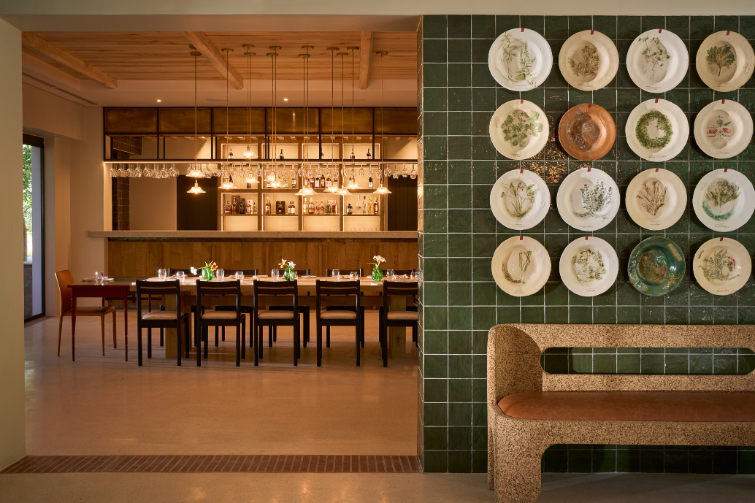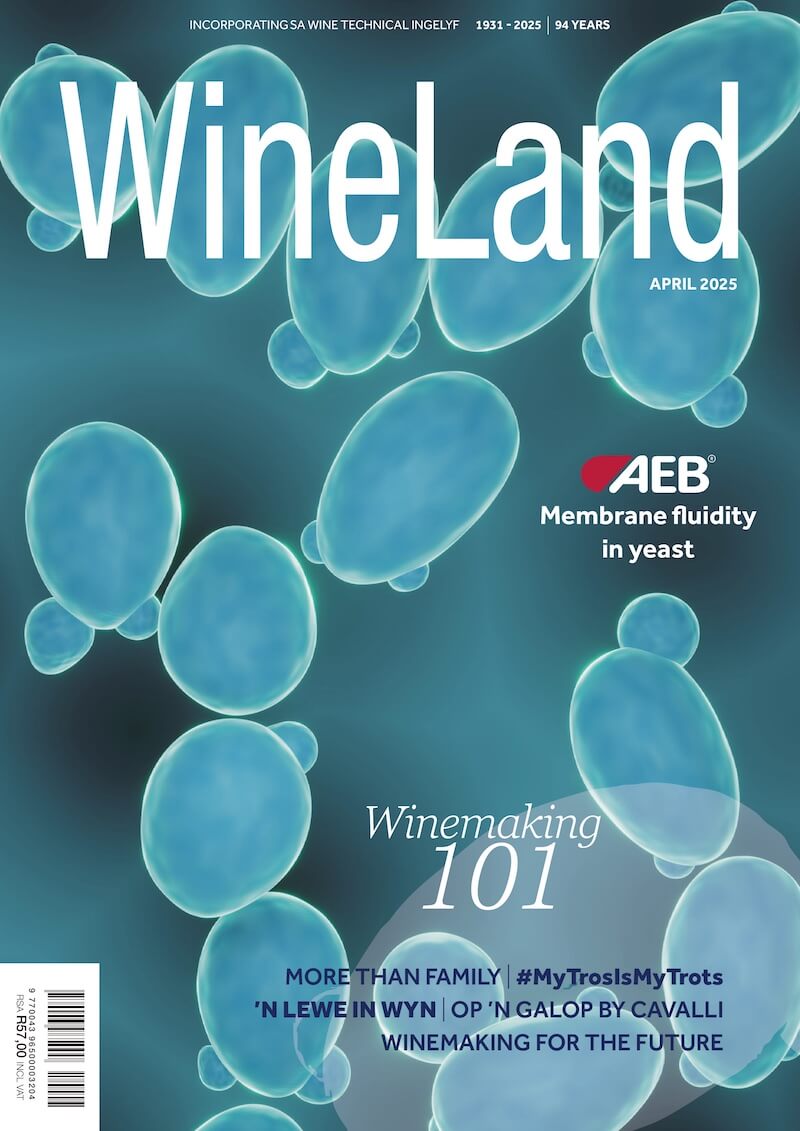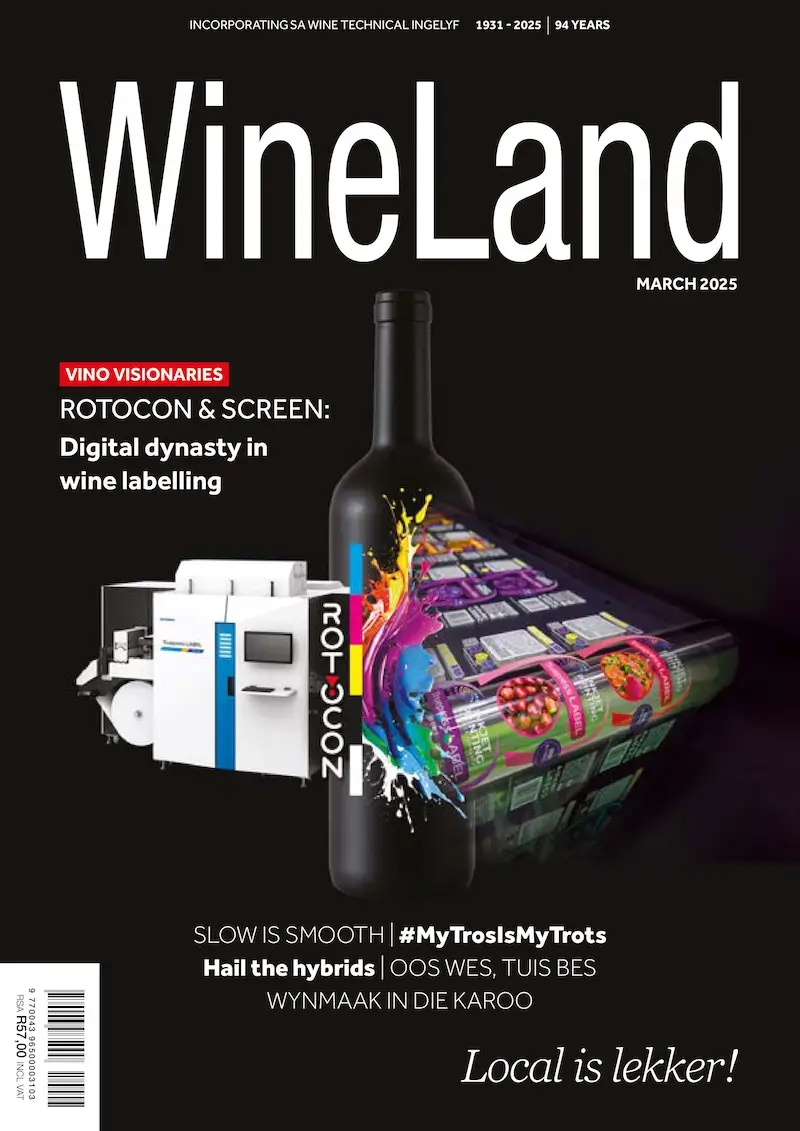Barely three years after setting up its mobile canning line, Tiny Keg has already canned seven million drinks. By all accounts, that’s just the beginning. In the process, it has brought the South African wine industry to the cusp of an exciting new era.
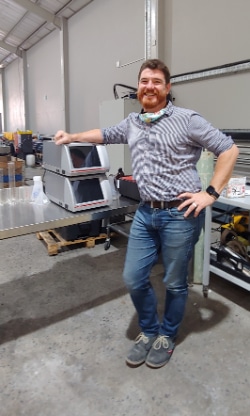
Tom Riley, founder and MD of Tiny Keg, by an Anton Paar wine alcolyser.
Tiny Keg began offering bespoke, flexible canning services for craft beer brewers in the Western Cape in 2019. But it turned out the local wine industry was also eagerly looking for accessible canning services.
“One of the purposes of setting up this company was to enable access to market for smaller brands, producers and entrepreneurs,” says Tom Riley, founder and managing director. “Craft beer was a logical place to start with mobile canning, but the intention was always to expand to other products.”
Paving the way
Tiny Keg not only identified the opportunity but was also part of the process to get canned wines approved in South Africa. The company worked closely with local wine producers and BevCan to confirm the wines were stable in a can. By the time SAWIS approved canned wine near the end of 2019, Tiny Keg was all set to start receiving and advising clients.
Referring to the different forces that comprise an industry’s competitive environment, director Rob Heyns explains South Africa’s wine industry offers a distinctive value proposition which can be compared with German engineering, Italian design or American technology.
“In each of these places you have lots of strong buyers, suppliers, supplementary suppliers, and industry knowledge,” he points out. Likewise, the local wine industry has a thriving ecosystem of suppliers, customers and services. By nurturing relationships with the stakeholders and investing in this value chain, Tiny Keg has filled an important gap to increase access to international markets for South African wine brands.
“We’ve done a lot of work with BevCan to be able to supply all our customers with cans,” Rob explains. “We’ve also acquired a mobile labelling machine and two types of sleeving machines, negotiated smaller volumes for printed cans, and sourced a Velcorin doser to prevent product contamination.”
It has also caught the attention of prominent international brands, which are being canned and labelled here before being shipped to the United States.
“We’ve proven we can get a product into the international market at a competitive price. Our liquid, our services and our raw materials are all very cost effective, and the MOQs [minimum order quantities] are manageable,” says Rob. “We also have a few advantages compared to China, for instance, in that we can fulfil small orders, we can speak the language, and you know the quality’s going to be good.”
Tiny Keg: Proudly South African
Tiny Keg’s success overseas was only possible because of the great diversity and quality of our local wines. But although canned wines from enterprising brands such as Bruce Jack and Adi Badenhorst are making a splash overseas, local demand for canned wine is still practically non-existent.
It’s high time South African wineries and end-consumers also begin to realise the potential here. “All these wines are going overseas, and it’s important for sustainability that South Africans understand the value of canned wine,” Tom says.
Tiny Keg is working hard to make it happen, for instance by providing canned wine through online platforms (including a wine club) and in strategically selected restaurants and retailers. With its main investor, Yela Partners (which recently acquired a stake in Southern Skies), the company is training some big guns on the whole sector.
Streamlined quality
Mobile canning technology has come a long way, especially in the last couple of years, and cans have now conclusively proven themselves against traditional packaging formats for wine. Tiny Keg has invested heavily in equipment and logistics to enable flexibility while maintaining the highest possible standards.
The company moved to a newly renovated site in Brackenfell late last year, where the mobile canning line links up with a high-tech carbonation facility. “The new site expands on what we can offer,” Tom says. “Being able to carbonate the wine is a big advantage by cutting out third parties.”
The plant relies on deaerated water – something more familiar in the beer industry. This removes all the oxygen, which is especially unwelcome in cans. We can use that water to flush the lines, but it also means we don’t add oxygen to the wine when we transfer it.”
The facility also features a clean-in-place (CIP) system to ensure they deliver on their promise of quality. “Cleaning chemicals have to be at the right concentrations, at the right temperature and at the right flow rate, and all of this can be centrally controlled,” says Tom.
Next goals
Tom sees a lot of opportunities for premium wine, where vintages can be canned in smaller quantities and quickly and safely distributed for anything from tastings to competition samples.
Through their own interactions with suppliers along the value chain, they’re able advise clients on the best practices and relevant contacts at every step. “You don’t have to prepare wine differently to put it into a can, but you can improve how you do it,” he says.
The warehouse is fully customs bonded so it can receive and store packaged products on behalf of clients. By removing middlemen and offering more services, Tiny Keg aims to bring down costs and make smaller volume jobs more profitable. Every improvement has this goal in mind.
Tiny Keg has firmly established itself as thought-leaders and pioneers in the wine industry, and Tom takes this role seriously. “Our focus is on creating value,” Tom says. “If we can continue adding value, in the long run we can create a sustainable and relevant business. We’re only getting started.”
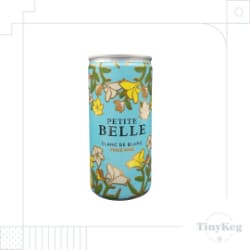
Tiny Keg’s latest job for Kleine Zalze’s Visio brand. The Petit Blanc will be exported to Sweden.
Everything you ever wanted to know about putting wine in a can: Coetzee, C. 2021. The winemaker’s guide to wine in a can. [Free e-book, 3 Mb]
Watch
Click here to buy your latest copy of WineLand Magazine and subscribe to our monthly newsletter.
